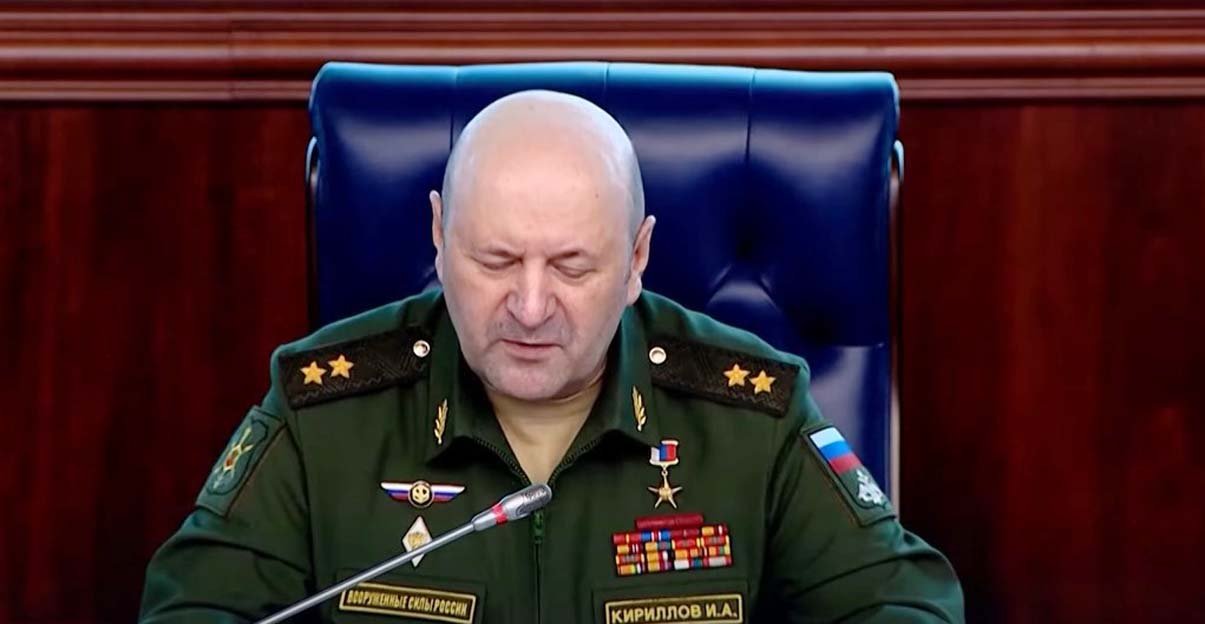December 17, 2024 – Head of Russia’s Nuclear, Biological, and Chemical Protection Troops and major player in the military hierarchy, Igor Kirillov was killed in a well-publicized bombing event in Moscow. Citing Kirillov’s alleged involvement in planning chemical weapon strikes during the Russia-Ukraine conflict, the Security Service of Ukraine (SBU) has asserted accountability for the attack.
This occurrence signals a sharp increase in hostilities, which begs grave questions regarding the changing dynamics of contemporary conflict and their consequences for world stability.
Details of the Assassination
The attack happened on Ryazansky Prospekt, a Moscow residential area, at around 8:30 AM. Reports state that an electric scooter parked close to Kirillov’s house concealed a bomb weighing three hundred grammes of TNT. The explosive device was electronically activated as Kirillov and his helper exited their vehicle.
Both Kirillov and his assistant were killed instantaneously in the bomb, which caused substantial damage to neighboring structures. Security footage from the neighborhood purportedly reveals a strange man messing with the scooter late the previous evening, suggesting thorough premeditation.
Ukrainian Admission of Responsibility
Declaring the operation “a justified act against a war criminal,” the SBU claimed credit in a statement issued hours after the incident. The Ukrainian agency accused Kirillov of directly sanctioning the deployment of chemical agents in fighting along Ukraine’s eastern frontlines. These weapons have allegedly caused enormous devastation, including civilian casualties, however independent verification of these claims remains difficult.
According to Politico, Ukrainian President Volodymyr Zelensky endorsed the operation, stating during a press conference, “Those who orchestrate terror and war crimes against our people will not escape justice, no matter where they are.”
Kirillov’s Controversial Legacy
Igor Kirillov was a key architect of Russia’s chemical weapons program, directing its development and deployment. His role had garnered him sanctions from various Western governments, including the U.S. and the EU. Western intelligence agencies had long considered him a critical element of President Vladimir Putin’s inner circle, tasked with maintaining Russia’s strategic lead in non-conventional warfare.
Human rights groups, including Amnesty International, have accused Kirillov of facilitating crimes in Syria and Ukraine. He faced international allegations of breaking the Chemical Weapons Convention, with claims of directly overseeing the use of Novichok nerve agents in past Russian operations.
Moscow’s Response
The Kremlin has seriously denounced the assault, calling it a demonstration of psychological warfare. Dmitry Medvedev, Representative Executive of Russia’s Security Chamber, depicted the death as “ an unprecedented provocation that demands a decisive response.” Russian officials have vowed retribution, with Defense Minister Sergei Shoigu pledging intensified measures to safeguard national security.
Russian official media sites, such as RT, have accused Western intelligence agencies of supporting Ukraine in carrying out the assassination, however no proof has been offered to back these assertions.
International Reactions
The assassination has sent shockwaves through the worldwide community. NATO has raised concerns about the potential for further escalation, asking both sides to display moderation. Meanwhile, the United Nations has reaffirmed its demand for calm negotiations, underlining the need to protect people from the ongoing bloodshed.
Western governments, while not explicitly condoning the strike, have refrained from denouncing Ukraine’s conduct. A U.S. State Department official commented, “We stand with Ukraine as it defends its sovereignty against Russian aggression.”
Impact on Civilians and Communities
The attack has greatly frightened Moscow’s people, who are unaccustomed to the bloodshed of the Russia-Ukraine war reaching their city. Local officials have strengthened security measures, with roadblocks and patrols created in high-risk areas.
Psychologists warn of increased worry among people, particularly youngsters, as the conflict’s spillover into Russian metropolitan centers becomes a reality. Natalia Ivanova, a resident of Ryazansky Prospekt, echoed her anxieties, stating, “We never though this war would come to us. Now, no one feels safe.”
What This Means for the Russia-Ukraine Conflict
Kirillov’s killing signifies a turning moment in the Russia-Ukraine war, displaying Ukraine’s capability to hit high-value targets deep into Russian territory. This development may drive Moscow to retaliate with escalated hostility, potentially escalating the conflict to new proportions.
Experts warn that this assassination might also destroy any residual hopes for diplomatic resolutions. As retired NATO General Ben Hodges noted, “The line between battlefield and civilian space is blurring, and this sets a dangerous precedent for future conflicts.”
Conclusion
The execution of Igor Kirillov symbolizes one of the most crucial incidents in the ongoing conflict, underscoring the catastrophic toll of war on individuals, nations, and global peace efforts. As the world watches, the prospect for de-escalation remains faint, and the possibility of greater violence looms big.
References
- Business Insider: Ukraine assassinates Russian chemical weapons chief in Moscow explosion
- BBC News: Russian general killed in Moscow blast
- CBS News: Kirillov assassination raises global tensions
- Politico: Ukraine takes responsibility for Moscow bombing
- Amnesty International: Chemical weapons and war crimes in Ukraine

